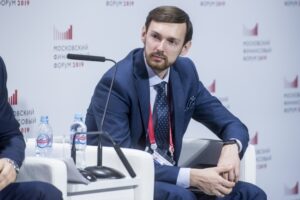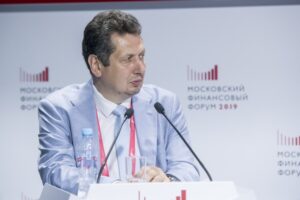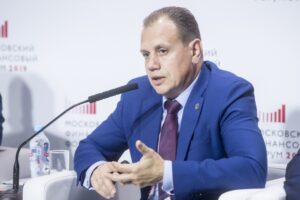On September 12 at Moscow Financial Forum a round table dedicated to the financial support of the territorial development plans was held. The round table was moderated by the Director o the Social Finance Reformation Institute non-profit organization and the Head of the Governmental Economy Regulation Department of RANEPA Vladimir Klimanov. He emphasized the importance of the topic and the benefits that may be entailed by bringing it from the periphery of the governmental regulation to the central agenda of the regional development.
The discussion was participated by the Director General of the Yenisey Siberia Development Corporation Sergei Ladyzhenko, Deputy Minister of Economic Development of the Russian Federation Vadim Zhivulin, top experts in economy, finance and politics.
The key topics of the discussion were the synchronization of the various support measures provided under the territorial development plans, bringing them to the optimal organizational and financial formats, initiative budgeting and financing of the projects with the purpose of improvement and amenities of the Russian territory.
The Spatial Development Strategy created in February 2019 implies the development of middle-term and long-term plans of socioeconomic update of various territories, including macroregions, cities and urban agglomerations, as well as rural territories.
The meeting participants discussed some regular restrictions the investors face today, as well as the support measures to be provided by the state and the development institutions. Today, there is a number of legislative barriers that hold back the investment development. One of them is the absence of a unified “investment code of Russia” that would establish the same rules for the investors in the territory of the country, high mineral mining tax rates, restrictions applied to foreign investment, absence of required authorities at the regional level. A special attention should be paid to the availability of credit funds and compensation of the investment contributions.
Sergei Ladyzhenko remarked that the investment efficiency could be increased by elimination of barriers, enactment of the unified rules, and financial support of the investment. “The regulation of the investment activities and financial support for the infrastructure critical for the investment projects are the key problems today. Only when the state and businesses align their investment plans with each other, we can count on a powerful economic effect”, remarked Sergei Ladyzhenko.





